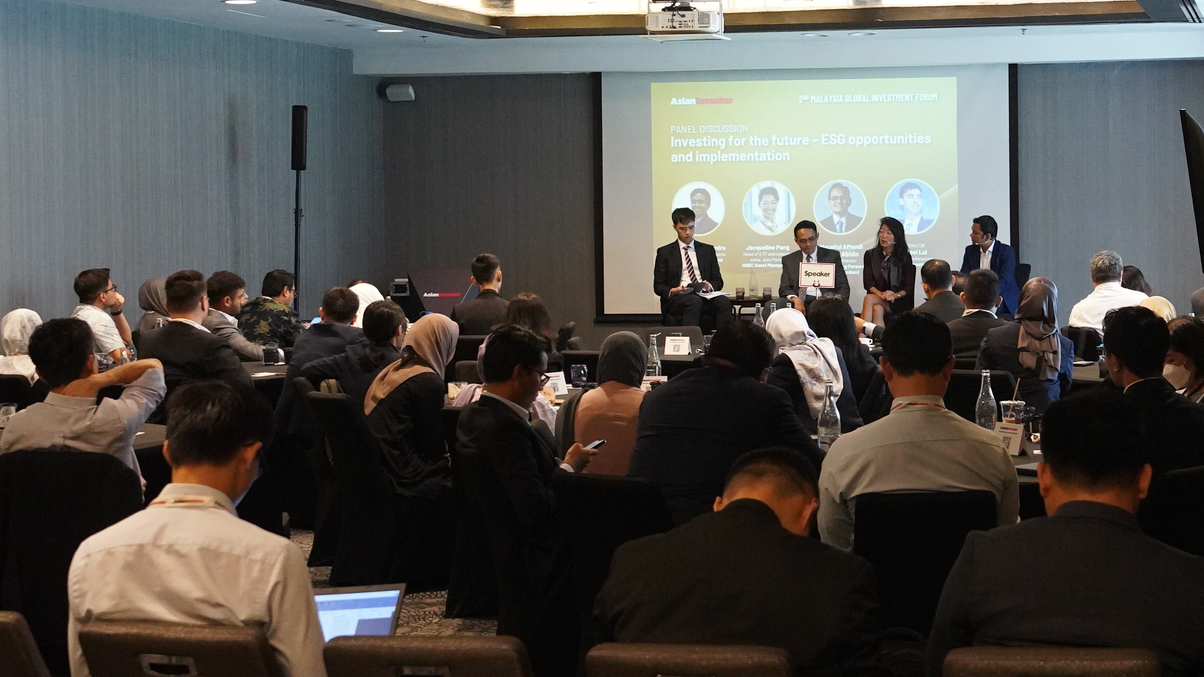Malaysian institutions place ESG at forefront in investment strategies
The institutional investors are dedicating resources to ensure a thorough adaptation of ESG standards across their portfolios, the audience hears at AsianInvestor’s Malaysia Global Investment Forum.

Environmental, social and governance (ESG) standards are moving to the forefront of investment strategies for Malaysian pension fund Kumpulan Wang Persaraan (KWAP) and Permodalan Nasional Berhad (PNB), the government-owned asset manager for all Malaysians and the wealth of the country's Bumiputera community.
Sign in to read on!
Registered users get 2 free articles in 30 days.
Subscribers have full unlimited access to AsianInvestor
Not signed up? New users get 2 free articles per month, plus a 7-day unlimited free trial.
¬ Haymarket Media Limited. All rights reserved.


